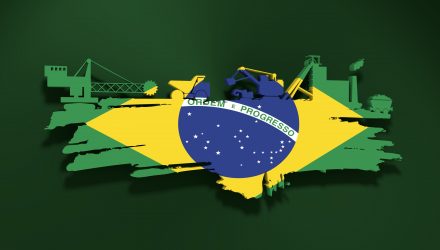The election of the polarizing Jair Bolsonaro was the message Brazilian voters communicated to the world that anti-establishment was in and traditional politics was out. However, now the real work begins and investors of Brazil-focused exchange-traded funds (ETFs) will be keeping a watchful eye on the early months of Bolsonaro’s presidency.
Brazilian voters went to the polls last Sunday and the far-right candidate Bolsonaro emerged as the victor, racking up 55% of the votes to win the presidency of the largest country in Latin America after beating out leftist Fernando Haddad. Bolsonaro’s runoff-election victory came after the first round saw him take the early lead with a better-than-expected 46.7% of the votes, while Fernando Haddad came in second with 28.5%.
Bolsonaro is inheriting a bevy of problems he must address during the course of his presidency and the faith of Brazil’s populace will hinge upon his success. Of course, Bolsonario’s biggest task is to help extract the country from its current economic doldrums, but his election is perceived by market experts as one that leans toward the benefit of the country’s capital markets.
This bodes well for Brazilians as the economy will be first and foremost on their minds since the country has been slow to recover after it experienced its worst recession to date. Unemployment levels remain high with double-digit figures and the country is drowning in public debt–74% of Brazil’s GDP.
“Bolsonaro’s win heralds big changes for Brazil, whose economy remains in a fragile state despite recovering from a 2015-2016 recession,” said Isabelle Mateos y Lago, Chief Multi-Asset Strategist at BlackRock, in a recent blog post. “Brazilian risk assets had rallied since Bolsonaro’s polling prospects started improving ahead of the first round of the election. Yet we see the decisive victory by Bolsonaro–widely perceived as more market friendly than his left-wing opponent Fernando Haddad–as largely priced in by financial markets.”
While the annual GDP growth has posted positive gains as of late, it’s still not at a level where economists are optimistic about the future growth prospects. Prior to the election, the ideal situation to address Brazil’s current financial woes was to elect a president who is market-friendly to help stymie the issues by effecting policies that favor economic expansion and growth–now, they potentially have that in Bolsonaro.
